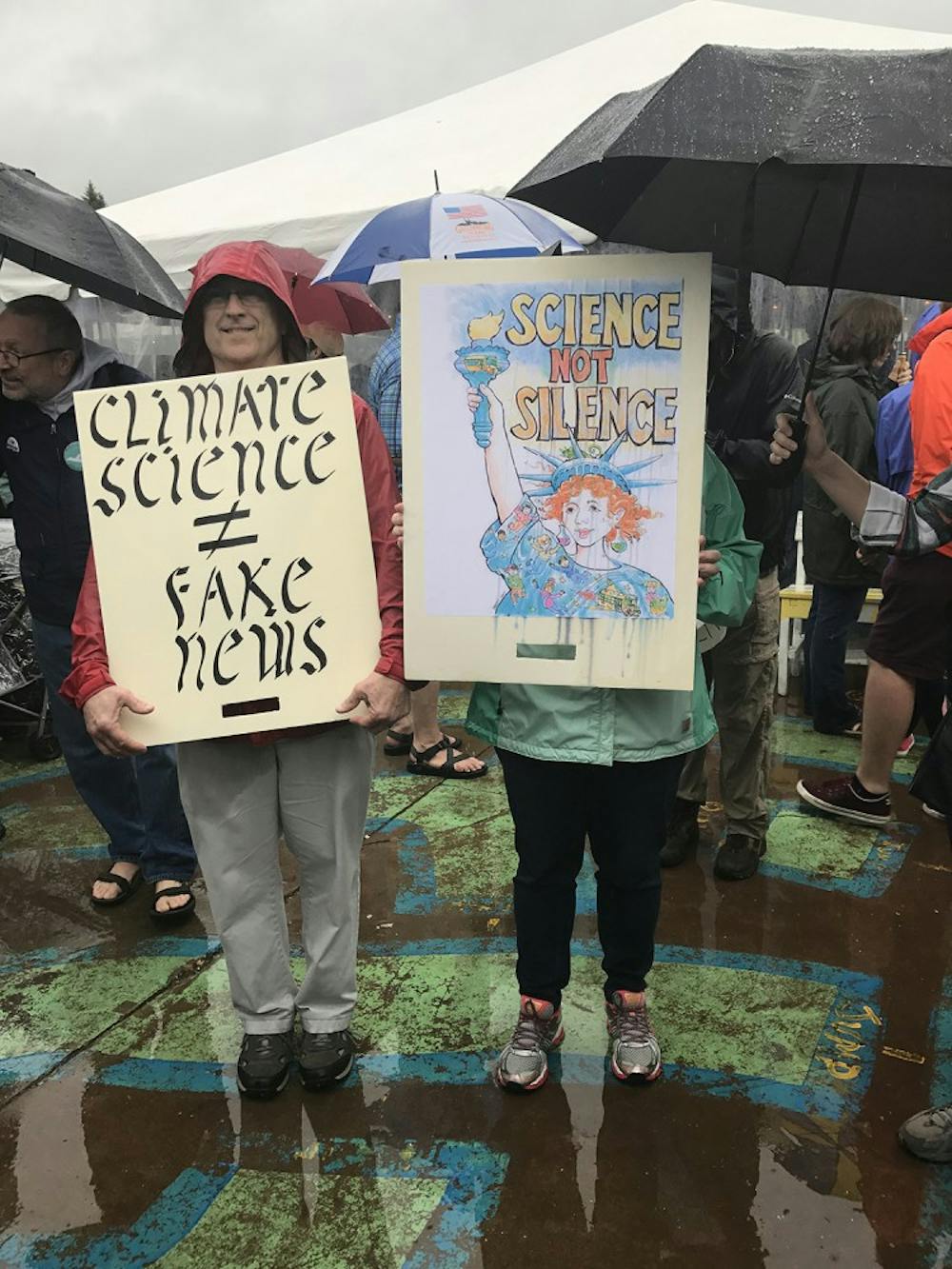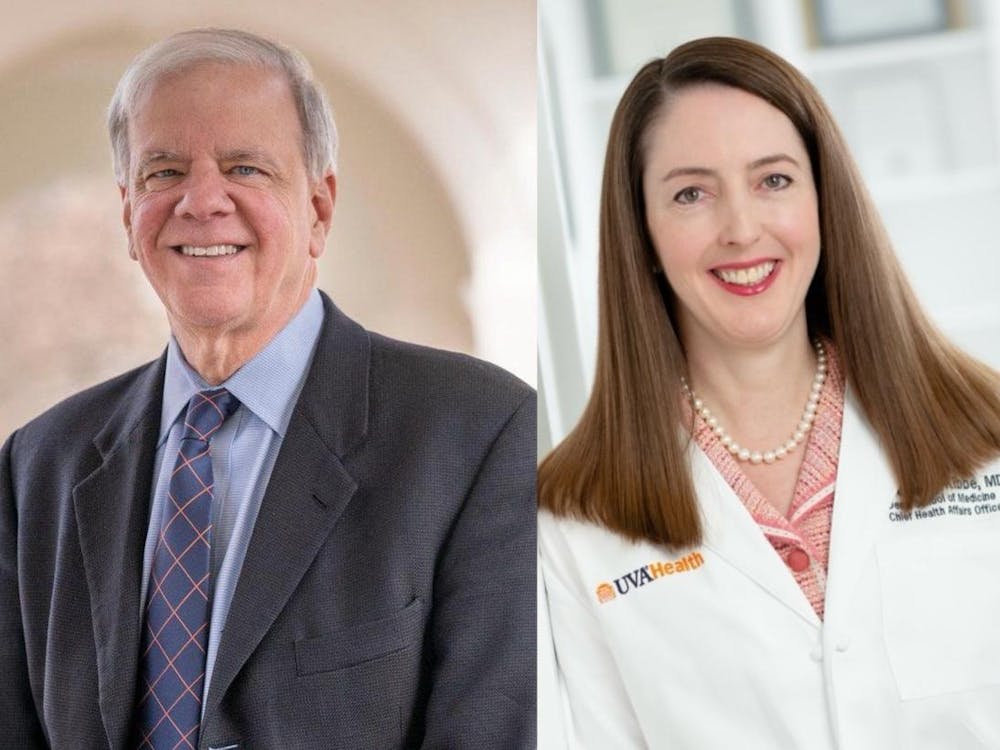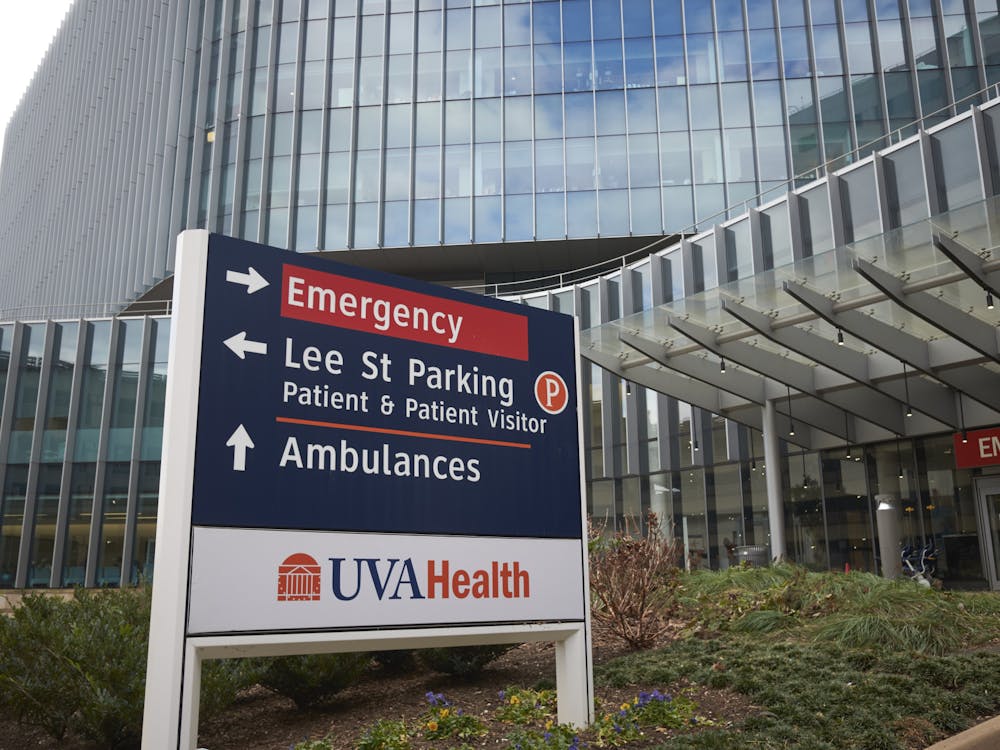Calls of “science not silence” echoed in IX Art Park as researchers, students, doctors and the general public gathered to support science as an institution. Sunday’s Charlottesville March for Science was a satellite march for the main event taking place on the same day in Washington, D.C. It consisted of various educational tents, speakers ranging from scientists to entrepreneurs and a half-mile march from IX Art Park to the Downtown Mall, which culminated in a science-themed concert at the Sprint Pavilion.
Speakers and marchers expressed frustration at the current presidential administration's words and actions. March attendant Claire Chamberlin held up a sign supporting the sciences during the march. She advocated, in particular, for the current administration to increase renewable energy
progress.
“I don’t like that we’re backsliding on things like the Environmental Protection Agency and renewable energy and national parks,” Chamberlin said. “Things are bad enough as is, with the Great Barrier Reef dying and the bee population endangered … I really want to show people that [this planet] matters, even if it doesn’t matter to the administration, it matters to me.”
Since his January inauguration, President Donald Trump and his administration have supported cuts to research funding, reversed the Clean Power Plan developed by the Obama administration and forced a re-evaluation of the 1972 Clean Water Act protecting waterways from alteration or damage, including that caused by coal mining waste. Trump’s proposed budget cuts National Institutes of Health funding by around 20 percent, representing a major threat to researchers throughout the sciences.
March attendant Paul Ackerman stated a main aim of the event was to promote funding for scientific causes like the EPA and medical research. Recent proposed budget cuts would disproportionately affect research in the sciences and enforcement in environmental law, while military spending would not be decreased, according to Ackerman. Despite anger expressed at the current presidential administration, Ackerman felt encouraged by the march’s turn-out.
“A lot of turning out and making their voices known — I think that’s a really good start,” Ackerman said. “People need to vote next time. Be active, don’t just stay home and wish things would get better.”
Speakers at the event included Martin Chapman, founder of INDOOR biotechnologies and former professor of microbiology; Matt Shields, physics teacher at Charlottesville High School, supervisor of Best All-Around Club of Nerds (BACON) and recipient of the 2016 Yale Educator and the 2014 MIT inspirational teacher award and Chris Deppmann, assistant biology professor and a proponent of early introduction to research. The speakers primarily emphasized the importance of the sciences, as well as calling attention to the voices of scientists and the science community in directing the future of the field.
“We, as scientists, need to decide where we’re going to go and we need to take this administration with us,” Chapman said.
Shields called attention to the vital role of science in understanding the world. Science means dwelling in uncertainty, asking questions and not always seeking out a “capital-T truth,” Shields said.
“Being an informed citizen is an important part of just being a human,” Shields said. “We live in a big, beautiful amazing world. The more you know about that world, the richer your experiences in that world. A goal of any human on this planet should be to know as much as they can about the world, and science is one of the best tools that we’ve come up with to know about our world.”
Deppmann said the return on scientific investment is approximately eight-fold, and greater spending in health and science directly correlates with increased economic growth. United States spending on research is significantly less than other countries such as China and Australia, according to Deppmann. He expressed specific concern regarding the proposed nearly 20 percent cut to the NIH research budget.
“[The cut] would be devastating,” Deppmann said. “This has a ripple effect. Students in the lab are becoming discouraged about the future of science because they don’t think that our society values what they’re doing, so they’re walking away from it.”
Despite the recent administration’s actions, Deppmann and the marchers do not feel discouraged. They look to the future and remain optimistic about what the future of science holds.
“Our nature as humans is to be explorers,” Deppmann said. “We’ve mapped out the corners of the globe, we’ve put a man on the moon and now we’re looking inward. We’ve unlocked the secrets of DNA, cured polio and countless other diseases and cancer is on the decline … I have to say that I really remain optimistic.”






